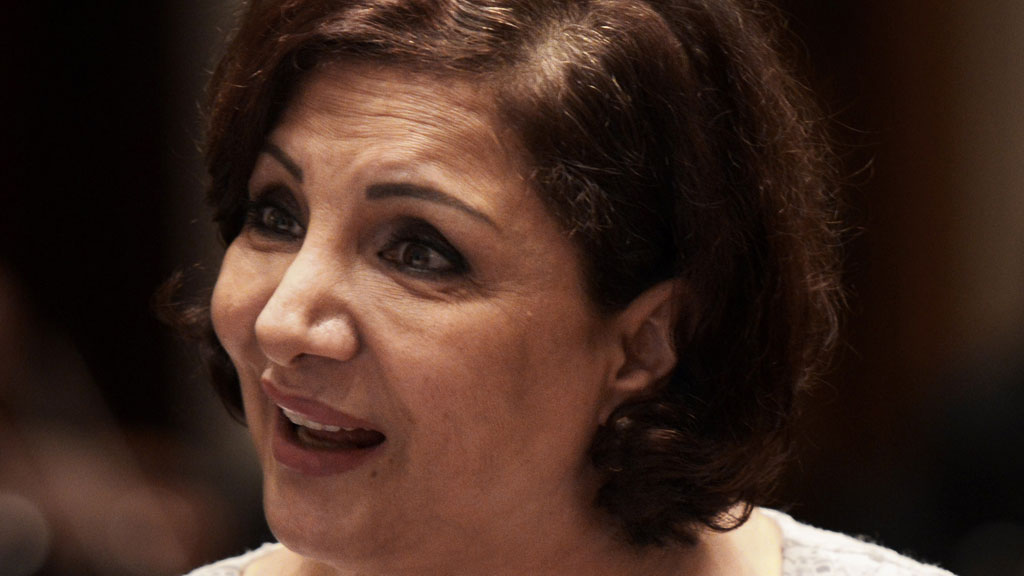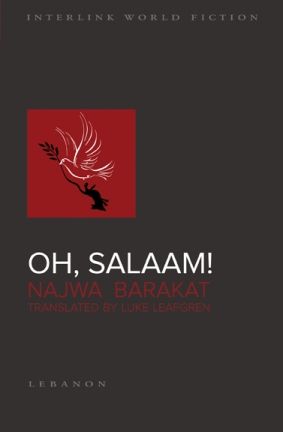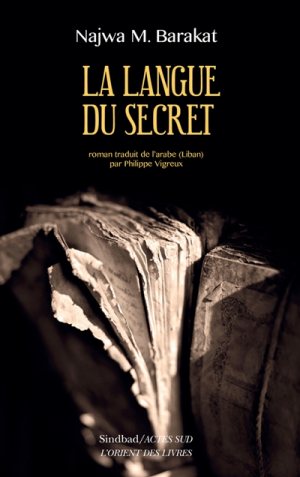Combating the desertification of Arab culture

If every writer has a question at the centre of their novels, says Najwa Barakat, then "my question is related to the human capacity for committing and bearing violence: the paradox of our ability to produce violence that we can't bear."
In the last decade, Najwa Barakat's novels have received growing critical acclaim, both in Arabic and in translation. This year, the Lebanese writer saw her first book published in English: "Oh Salaam!", translated by Luke Leafgren. This signature work explores how it is possible – or not possible – to move past war-time patterns of violence. Also this year, Barakat's "The Language of Secrets" (2004), translated into French by Philippe Vigreux, was shortlisted for the French "Prix de la Litterature Arabe". In the book, a precious document is stolen from a hermitage and violence ensues.
Barakat was born in Beirut in 1966 and came of age during Lebanon's 1975–1990 civil war. She published her first novel in 1986, while the war still raged, and has since written five more. Like other contemporary Lebanese writers, Barakat has been drawn to writing about her country's conflicts. But her novels also move beyond the war, to other explorations of the human capacity for violence. "Many who read my novels now think they're in response to what's happening in the Arab world today," Barakat said in a July 2015 interview.
But Barakat, who has also written for radio, film and theatre, is not just an important contemporary writer. Since 2005, she has also been a key guide for emerging writers across the region. She launched her first "Mohtaraf" writing workshop in 2005. In 2009, it became a permanent fixture on the Arabic literary scene. Since the 2009–2010 workshop year, the intensive Beirut-based writing workshop has attracted a diverse group of aspiring novelists, scriptwriters and playwrights; extensions of the workshop have been staged in Manama and Dubai. Eight novelists are participating in the core 2014–15 edition.
Launchpad for young Lebanese novelists

The first intensive workshop, held in 2009–2010, launched books by young Lebanese novelists Rasha Atrash, Hilal Chouman and Rana Najjar. By now, Barakat says, her workshops have launched 18 books. "Eighteen novels means 18 new writers," says Barakat. Many of these books have won awards. One of the top $60,000 prizes of the new Qatar-based Katara award went to Bahraini author Mounira Sowar for her Mohtaraf-supported novel "A Slave".
The Mohtaraf project was born of an existential crisis, says Barakat. After she'd reached a certain stage in writing "Secret Language", she needed to wait a while before continuing revisions. "I needed to get involved in something bigger than myself, something to distract me and give myself a goal."
"Also, I felt that there was a massive desertification going on in the Arab cultural scene, and that I had to act against that erosion." At the same time as this desertification, she says, she felt there were many talented Arab writers. These writers were "eager for knowledge, culture and the arts – capable of absorbing and being absorbed."
These emerging talents needed help with their craft, she says, but they also needed something more. Many failed to blossom because they went undiscovered, their works unread. So Barakat decided that she could contribute by involving publishers at the end of the writing-workshop process.
Barakat's own novels are trimmed-down and fierce in their exploration of humanity's dark side, and these aspects are evident in the guidance she gives young writers. In Barakat's novels, she fearlessly follows human behaviour wherever it takes her. "The first thing I teach in my workshops is to kill the internal censor."
This is different from the "Arab censor" as seen in the West, says Barakat. There is a tendency among foreign publishers and critics to over-sell "taboo-breaking" Arab writing that discusses religion, politics and sex. These taboos, she says, have been common ground for Arabic letters since the 1960s. But the Western attraction toward these "taboo-breakers" has led to the promotion of novels that are of low literary quality while neglecting other, important works.
Over-emphasis on Arab "taboo-breakers"

Too many Arabic novels are translated because they seem to be "eavesdropping on what is hidden and restricted," says Barakat. Others are translated because they line up with Western fantasies about Arabs.
"I'm not saying we live in societies that are totally free, but I'm saying that Arabic literature was liberated from those taboos a while ago," she adds. "And now the topics and issues [discussed in our novels] are those of interest to humans anywhere." Still, self-censorship is important for any author to conquer, she says. An internal censor can lead to the creation of a work that is "dead and stuffed", without spirit and blood.
Barakat's novels are also lean and pared-down. Once she has a complete draft, she says, she starts what she calls a "combing" process to reduce waste and get rid of any vagueness in the text. This makes her work different from much of Arabic writing, she says, which piles adjectives on top of adjectives to create a lyrical, musical text.
"Personally, I don't stand with unnecessary digressions," she says. She works with young writers to "rid their books of all that is unnecessary".
The need for more Arab literary editors and more revision has been much discussed, including prominently in Mourid Barghouti's awards-ceremony address ahead of the announcement of the 2015 International Prize for Arabic Fiction. Barakat is a fearless writer; hopefully, she can foster this in her students and help develop exciting new Arabic novels that continue to bring new life to the Arab literary scene.
Marcia Lynx-Qualey
© Qantara.de 2015
